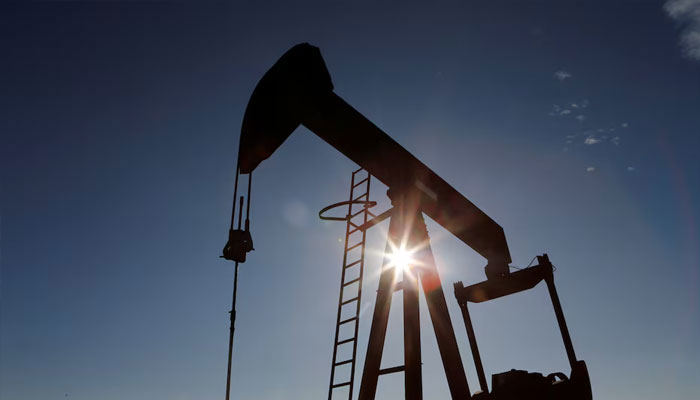Oil sector faces Rs25bn cost surge
KARACHI: The operational costs of Pakistan’s oil industry are expected to rise by approximately Rs25 billion in the current fiscal year due to a sales tax exemption introduced during the financial year.
The Finance Act 2024 exempts sales tax on motor spirit (petrol), high-speed diesel oil, kerosene, and light diesel oil. This exemption has disallowed proportionate input tax claims, significantly increasing operational costs, according to the Oil Companies Advisory Council (OCAC) in a letter to the petroleum minister.
“This policy change severely impacts the financial viability of our ongoing upgrade projects, infrastructure development, and day-to-day operations,” the OCAC said. “The continuation of this exemption will erode profitability and place severe financial strain on the industry, jeopardising critical capital-intensive projects essential for ensuring an uninterrupted supply of petroleum products.”
Meanwhile, the sales tax exemption issue has become entangled in an ongoing rift between Petroleum Minister Dr Mussadik Malik and Secretary Petroleum Momin Agha.This intense standoff has adversely affected oil-sector projects, including refinery upgrade agreements and the Shell Gas policy, both of which have seen little progress. Industry insiders claim that disagreements between the two senior officials has created significant obstacles, delaying the clearance of key projects.
For instance, the refinery upgrade agreements remain unresolved despite directives from the Special Investment Facilitation Council (SIFC), prompting Prime Minister Shehbaz Sharif to personally intervene to resolve the matter.
The OCAC has also sought a meeting with the petroleum minister to discuss the margins for oil marketing companies (OMCs) on petroleum products.The OMC margin was revised to Rs7.87 per litre in September 2023, with a further revision due in September 2024. However, the revision remains pending. In June 2024, the OCAC proposed increasing the margin by Rs4.78 per litre -- from Rs7.87 to Rs12.65 per litre -- based on critical cost factors, including financing costs for maintaining a 20-day stock cover, turnover tax, handling losses, demurrage charges, financing costs of unadjusted sales tax, and other operating expenses.
In contrast, the Oil and Gas Regulatory Authority (OGRA) has proposed a much smaller increase of Rs1.35 per litre, which includes Rs0.5 per litre earmarked for digitisation and automation of fuel pumps. However, the total estimated cost of digitising and automating fuel pumps exceeds Rs120 million, making Rs0.5 per litre grossly inadequate for cost recovery. Excluding the digitisation allocation, the effective increase in OMC margins proposed by Ogra is only Rs0.85 per litre -- significantly below the OCAC’s recommended Rs4.78 per litre. This reflects a mere 11 per cent increase, which fails to address the ongoing impact of inflation and rising costs.
The OCAC added the oil industry continues to face severe challenges, including rampant smuggling of petroleum products, high financing costs, sales tax exemptions, elevated turnover taxes, and insufficient OMC margins.
-
 China: Stunning Drone Show Lights Up Night Sky Ahead Of Spring Festival 2026
China: Stunning Drone Show Lights Up Night Sky Ahead Of Spring Festival 2026 -
 Andrew's Epstein Scandal: Will King Charles Abdicate Following King Edward's Footsteps?
Andrew's Epstein Scandal: Will King Charles Abdicate Following King Edward's Footsteps? -
 Billy Joel Leaves Loved Ones Worried With His 'dangerous' Comeback
Billy Joel Leaves Loved Ones Worried With His 'dangerous' Comeback -
 Prince William Dodges Humiliating Question In Saudi Arabia
Prince William Dodges Humiliating Question In Saudi Arabia -
 Dax Shepard Describes 'peaceful' Feeling During Near-fatal Crash
Dax Shepard Describes 'peaceful' Feeling During Near-fatal Crash -
 Steve Martin Says THIS Film Has His Most Funny Scene
Steve Martin Says THIS Film Has His Most Funny Scene -
 Kensington Palace Shares Update As Prince William Continues Saudi Arabia Visit
Kensington Palace Shares Update As Prince William Continues Saudi Arabia Visit -
 Fugitive Crypto Scammer Jailed For 20 Years In $73m Global Fraud
Fugitive Crypto Scammer Jailed For 20 Years In $73m Global Fraud -
 Will Andrew Mountbatten-Windsor Finally Go To Jail Now That King Charles Has Spoken Out? Expert Answers
Will Andrew Mountbatten-Windsor Finally Go To Jail Now That King Charles Has Spoken Out? Expert Answers -
 Melissa McCarthy Reveals Her Tried And Tested ‘corpse’ Night Time Routine That’s Lost Her 95lbs
Melissa McCarthy Reveals Her Tried And Tested ‘corpse’ Night Time Routine That’s Lost Her 95lbs -
 Horrifying Pictures Of The Kidnapper Of Savannah Guthrie's Mother Released
Horrifying Pictures Of The Kidnapper Of Savannah Guthrie's Mother Released -
 Andrew's Ex-girlfriend Launches Brazen Attack On Epstein Victims On Piers Morgan Show
Andrew's Ex-girlfriend Launches Brazen Attack On Epstein Victims On Piers Morgan Show -
 Andrew Mountbatten-Windsor 'on His Own' As Palace Gives Green Light To Law Enforcement
Andrew Mountbatten-Windsor 'on His Own' As Palace Gives Green Light To Law Enforcement -
 Kanye West's Tweet About Super Bowl Halftime Resurfaced After Bad Bunny's Show
Kanye West's Tweet About Super Bowl Halftime Resurfaced After Bad Bunny's Show -
 'FBI' Star Juliana Aidén Martinez Tease Her Return To 'Law And Order: SVU' After Quitting
'FBI' Star Juliana Aidén Martinez Tease Her Return To 'Law And Order: SVU' After Quitting -
 Cardi B's Emotional Words To Pal Amid Stefon Diggs Rumored Breakup Revealed
Cardi B's Emotional Words To Pal Amid Stefon Diggs Rumored Breakup Revealed




